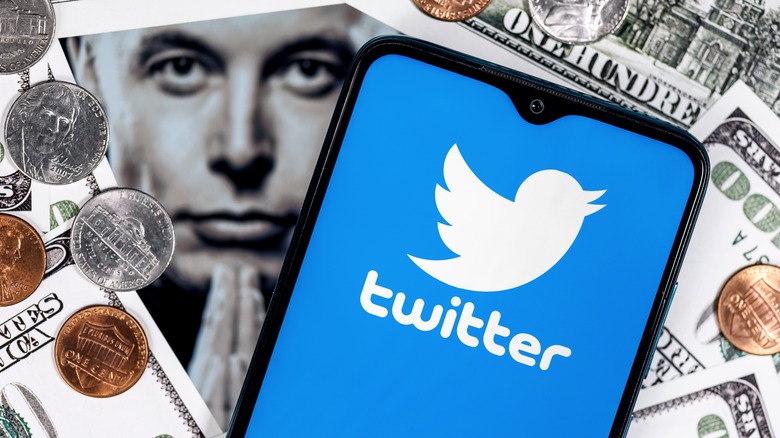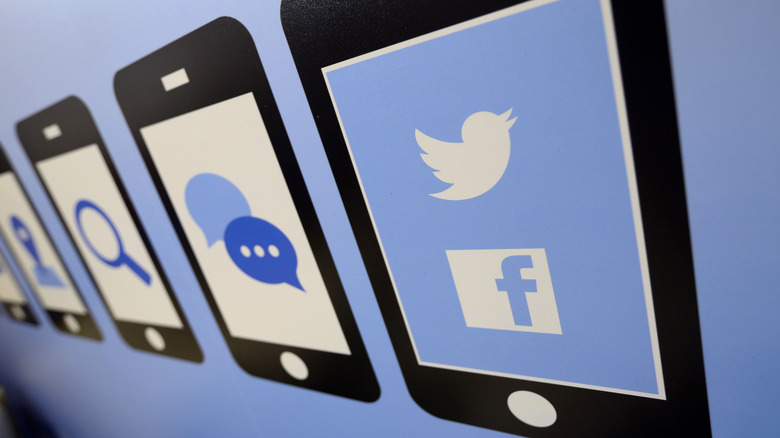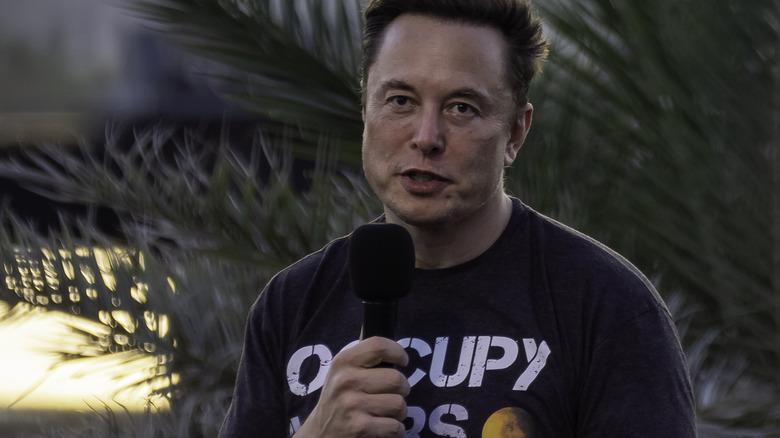

Twitter Quietly Bans Third-Party Clients After API Outage Confusion
source link: https://www.slashgear.com/1173174/twitter-quietly-bans-third-party-clients-after-api-outage-confusion/
Go to the source link to view the article. You can view the picture content, updated content and better typesetting reading experience. If the link is broken, please click the button below to view the snapshot at that time.

Twitter Quietly Bans Third-Party Clients After API Outage Confusion

Twitter quietly made a major change to its policy regarding third-party developers and apps. Third-party apps have been a significant component of Twitter's success virtually since its founding. For example, Twitterific, an iOS app established before Twitter had an app of its own the Apple ecosystem, likely coined the word "tweet" (via Engadget). That's how deeply embedded they are in Twitter's overall service.
Twitter's willingness to collaborate with third-party developers appears to be at an end, however. New language in its official agreement with developers forbids non-employees to "use or access the Licensed Materials to create or attempt to create a substitute or similar service or product to the Twitter Applications" (via Twitter). Per the same source at Engadget, that is the only significant change in the text of Twitter's most recent development agreement.
The change in relationship with developers outside Twitter seems to be part of the same profit-focused strategy that CEO Elon Musk has employed at the increasingly battered social media giant. Like several of those strategies to date, however, this one may backfire. Here's how.
Reversal of fortune(s)

At first glance, reining in the developers making money from Twitter's data might seem like the most obvious, least problematic policy decision the company could make. Twitter's data belongs to Twitter. People who don't work for Twitter are using it to make money. Why shouldn't Twitter eliminate those people and make all the money itself?
The potential problem is equally simple, however. A lot of people use third-party apps. Per TechCrunch, more than six million regular Twitter users interact with the service at least partly through a third-party program. As Engadget reports, some apps remove unwelcome ads or make other quality of life changes that appeal to a subset of Twitter users. Rather than switching to mainstream Twitter, the company may well lose those customers outright.
Engadget also notes that, prior to Elon Musk's takeover, Twitter collaborated rather than competed with third-party developers. Twitter actually removed language limiting third-party access from the company's Developer Agreement in 2021. Starting in early 2022, Twitter went a step further, implementing an across-the-board policy shift to decentralize its business model and find new sources of revenue (via the New York Times).
Cutting off third-party developers is an abrupt and significant reversal of that policy. Whether the new, narrow approach to development can bring in sufficient profit to balance Twitter's increasingly red ledger remains to be seen.
All The Ways Twitter Has Already Changed Under Elon Musk

Elon Musk is now the master of Twitter, a platform that he sees as the de facto public town square, and which he aims to turn into a free-speech utopia. However, Musk's takeover has been met with a rather vocal, but divisive, reaction. For folks that see him as a visionary, they are already predicting a revival of Twitter's fortunes, both as a product and a business. The likes of Mark Cuban, at least, think that way.
Others say Musk will drive the platform to the ground because of his inexperience running a company that is more politically sensitive and administratively entangled than any business he has run before. Then there's the concern about Musk's impact on steering the discourse on Twitter in the immediate future.
Whether he maintains its neutrality while bolstering free speech remains to be seen. How will he manage the conflict of interests while also serving as the chief of Tesla, when rival carmakers already advertise on Twitter? Will Twitter see an exodus of influential people under Musk's lordship? A lot has happened in the past few weeks.
Start the job with house cleaning
It is not a strange phenomenon to see a new owner cleaning the board and other C-suite executives after acquiring a company. Musk proved no different. Soon after news broke that Musk has finally signed the papers and has officially become the "chief twit," it was revealed that Musk had fired CEO Parag Agrawal, who took over the helm from co-founder and former CEO Jack Dorsey.
Musk had no special fondness for Agrawal and even challenged him to a debate publicly on Twitter over the platform's real user engagement and bot figures. Musk also laid off Twitter's top policy and legal executive Vijaya Gadde. Gadde is said to have been the architect behind suspending Donald Trump's account, a decision that Musk classified as "flat-out stupid."
Chief Financial Officer Ned Segal was also fired, alongside General Counsel at Twitter, Sean Edgett. There are also reports floating around that Musk is reshuffling the core engineering team at Twitter, and has also brought in Tesla's engineering team for an analysis.
Twitter waves goodbye to the stock exchange
One of the earliest grievances that Musk had with Twitter was the inability to take hard decisions, and that's because it has a public company where investors' will reigned supreme. Even Jack Dorsey reportedly confided as much in Musk, and the latter expressed publicly that Twitter needs to be taken private to take the heavy-hitting decisions that could inject fresh energy into the platform.
Well, now that Musk has paid his $44 billion with help from banks and a few very rich friends, the billionaire is taking Twitter private. Twitter has already filed Form 25 before the US SEC, an agency that Musk is not really fond of. The SEC, in turn, has directed the New York Stock Exchange to delist TWTR from its registry when trading begins on the morning of November 8, 2022.
Now, Musk will no longer have to release quarterly earnings reports publicly and field questions from investors. Twitter is effectively a closed book from a financial transparency perspective, and the only parties that will be privy to any such information will be supporting bank entities like Morgan Stanley, which need their fat interest in return for staking $13 billion in debt towards the purchase.
No plans of unbanning hellraisers
Musk isn't a fan of permanent bans, and has expressed his displeasure in the past over the suspension of Donald Trump's account. With Twitter now under his sole ownership, there was strong speculation that he would bring back the de-platformed personalities like Trump and Alex Jones. That won't happen any time soon, it seems.
Musk says he will soon form a "content moderation council with widely diverse viewpoints" that will take a look at all moderation and policy enforcement-related affairs. He tweeted that no decisions related to reinstating a banned account will be taken before a meeting of this council, adding that so far there are no changes from the existing Twitter policies.
To be super clear, we have not yet made any changes to Twitter’s content moderation policies https://t.co/k4guTsXOIu
— Elon Musk (@elonmusk) October 29, 2022
Details are thin on whether this council will consist of independent experts — the way Meta's Oversight Board operates — or if it only accepts in-house legal and policy experts from within the ranks of Twitter employees. Either way, the stakes are high, especially with Musk sitting at the top and his shifting geopolitical inclinations from time to time.
A surge in right-wing influence
"The reason I acquired Twitter is because it is important to the future of civilisation to have a common digital town square, where a wide range of beliefs can be debated in a healthy manner," Musk recently said of the deal. However, the news of his takeover has found a celebratory tone in the right wing circle, and dejection from those on the left side of the political ideology. There are numbers that suggest such a reality.
According to an analysis, accounts of popular far-right figures such as Lauren Boebert and Kari Lake have seen their follower growth shoot up by as much as 1,200% in the past 24 hours. The accounts in question are well-known for spreading hateful discourse and disinformation, which is an alarming trend.
The spike in popularity of these popular far-right accounts can not be conclusively linked to Musk's takeover of the platform. However, the sudden spurt in popularity due to fresh Twitter accounts aligns with the window when the final formalities that handed over total control of Twitter in the hands of Elon Musk, concluded.
Tesla rivals are on the fence
Elon Musk is now the simultaneous owner of Twitter — a plum place for advertising — and Tesla, the world's largest electric car brand. So, it was always a natural question for Tesla rivals to do a double-take about advertising on a platform owned by Musk. The concerns about accessing a neutral online platform are legitimate. What if Musk algorithmically suppresses their ads? What if Tesla ads on Twitter get an unfair advantage?
Earlier today, French carmaker Citroen shared a cheeky tweet that said "Hello to the social media platform owned by one of our competitors." The tweet set the tone for a serious debate that eventually snowballed into a realistic business and landed at the doorsteps of General Motors.
GM has now put a hold on advertising its goods and services on Twitter. The company will continue to rely on Twitter for resolving customer queries, but it won't be paying for ads on the platform for an undisclosed duration. It would be interesting to see if automakers decide to altogether shun their brand presence on Twitter, especially the likes of Ford and Stellantis that are increasingly competing against Tesla in the EV game.
Exodus of influential personalities
Ever since Musk first declared that he had purchased a majority stake in Twitter, which eventually transformed into full-house ownership, numerous influential personalities have expressed intent of waving goodbye to Twitter, fearing where the platform was headed under Musk's leadership.
Ken Olin, executive producer of NBC drama "This Is Us" announced his exit from Twitter with a tweet that said "I'm out of here. No judgement," further adding that "Let's protect our democracy." According to The Hollywood Reporter, Alex Winter of the "Bill & Ted" movie fame and co-writer of "Ocean's Thirteen," Brian Koppelman, have also bid adieu to the platform.
Wrestling News reports that WWE legend Mick foley has deleted his Twitter account. Other celebrities that have threatened to leave Twitter in the past include "The Good Place" star Jameela Jamil, "The Watcher" star Mia Farrow, Black Lives Matter activist Shaun King, and author Amy Siskind. Others like "Star Trek" legend George Takei have expressed that they will hang on to the platform and will try to balance out the negativity.
Recommend
About Joyk
Aggregate valuable and interesting links.
Joyk means Joy of geeK